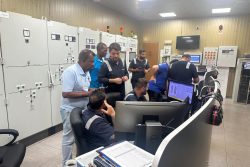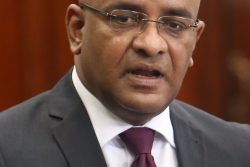Dear Editor,
I had the opportunity to attend a webinar, Wednesday September 23, 2020 co-hosted by the American Educator Research Association (AERA) and Organization for Economic Co-operation and Development (OECD), titled Education Research Worldwide in a COVID and Post COVID World. Interesting ideas were presented and exchanged by panelists and participants.
Editor, the general consensus from the panel is that research should be the primary engine behind education’s transformation both at the policy level and in curriculum delivery within the current COVID-19 environment. Further, the panel were unanimous that a Rapid Response Research (3Rs) programme is most critical at this time. The following themes were considered as priority:
3Rs immediate attention: the panel recommended that a Baseline Study and Data-set be immediately developed on the following — (a) Research for fear and trauma at the community level (rural, hinterland especially isolated communities, and migrant and marginalized communities). (b) Understand what’s happening in the classroom – Children are the least clinically affected by the pandemic (based on evidence of negligible infection rates) but are the demographic most likely to be affected by COVID-19 educational policies. (c) Research in trauma and grief (pupils, students, teachers, ancillary school staff, School Managers, Education Managers). These are predicated on the assumption that the school population may be impacted individually by the pandemic; at the interpersonal level having to embrace and empathize with a fellow student, peer, or other staff who may have also been so adversely impacted.
Hybrid classroom – (a) The home can now be considered as an extension of the classroom, the panel advocates for a Technology Support Learning – to provide greater agency to non-school actors e.g. support parents to become familiar with newer pedagogical tools for curriculum delivery. Support for pupils and students in digital technology based education can be interwoven into the following below:
Teachers – (a) Building teachers’ capacities should be at the forefront of education policy-makers. Among the initiatives discussed were: (i) Edulabs for Teachers and (ii) Peer learning among teachers. (iii) There was concern for countries where Digital Poverty, Digital Deprivation and Digital Literacy (for both teachers and students) are endemic. As a reference, a survey conducted in Regions 1, 7 and 8 in November-December 2019, 69% (out of 202 hinterland teenagers) indicated a preference for digital learning over more traditional vocational and technical subjects. Though non-related, digitalization of education can help meet the United Nations Population Report 2020-2050 which stated that worldwide rural communities will become more urbanized centres and in some instances pivot into smart communities. (b) Engage in research — teachers should be encourage to continue to engage in research with a bottom-up approach to influence framing and constructing educational policies.
Policy level: Leadership – (a) Rethink educational leadership in a COVID world. Interestingly the panel agreed that schools assessments should be terminated as is currently configured. Editor, I recall similar sentiments being discussed on various platforms prior to NGSA 2020. (b) The panel suggested that new school assessment be configured. (c) Create or use existing networks to support new educational policies and implementers. (d) Inter-disciplinarity – establish a Technical Science Research programme (as separate from the 3Rs) to inform educational policies’, then rethink approach to research in education by learning from other countries. Finally, the panel suggested that policy-makers and teachers inquire on the following “What are the philosophical, ethical and value statements expected from the use of virtual technology”. The question implied a moral and ethical dimension to varied experiences on social media platforms.
Yours faithfully,
Rohan Sagar





